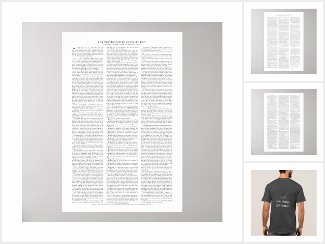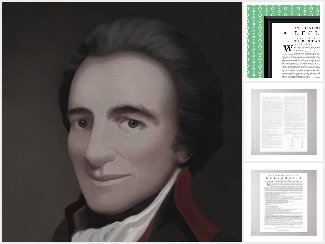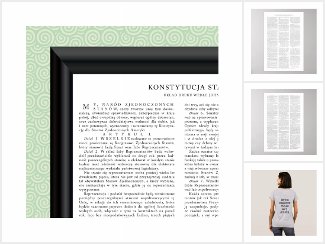Modal verbs do not narrate the real time. Their manner is relative to real time, as they mediate between the grammatical Time and Aspect. The name “modal” comes from the Latin word “modus”, meaning an extent or measure, too.
In ■CHAPTER 2, we viewed the verb form “will” in the fields of time. Grammatically, it does not clearly belong with the PRESENT, PAST, or FUTURE. The same is true about all Modal verbs.


Some grammars will have Modals for defective verbs. They differ from other, regular or irregular verbs. Let us compare.
Modal forms can have more than one grammatical time reference.
Let us imagine I say,
You might read this all.
MIGHT is the PAST form of the verb MAY, but it refers to the grammatical PRESENT or FUTURE as well.
Let us imagine I say,
When I was a child, I might read the books in the home library.
MIGHT is the PAST form of the verb MAY, and it refers to the grammatical PAST.
Modal verbs do not use the verb form “will” for their grammatical FUTURE.
We do not say, *will may.
Modal verbs do not have infinitive forms.
We do not say *to may.
They do not have participle forms.
We do not say *mayed or *maying.
|
REGULAR VERB: TO TRAVEL |
||
|
1ST FORM |
2ND FORM |
3RD FORM |
DYNAMIC PARTICIPLE |
STATIVE PARTICIPLE |
|
|
IRREGULAR VERB: TO WRITE |
||
|
1ST FORM |
2ND FORM |
3RD FORM |
DYNAMIC PARTICIPLE |
STATIVE PARTICIPLE |
|
Modal verbs have mostly two forms.
|
1ST FORM |
2ND FORM |
|
may |
might |
|
can |
could |
|
shall |
should |
|
need |
needed |
|
must |
(must) |
|
will |
would |
The verb form “to need” can work as a regular verb in American English today; it has three forms, need, needed, needed. The verb form “must” works as a second form only sometimes; we may return to it in further journey. The adjectival form “willing” is formed after the verb to will, considered a regular verb to have come with the noun, a/the will; we may compare the ■WIKTIONARY.
I could open any of the books I wanted, but I soon realized I needed to learn more, to comprehend the word sense, which I was willing and curious to do. I thought I had to go to university.
We may put Modals under labels.
POTENTIALITY ~ PROBABILITY
CONTINGENCY ~ CERTAINTY
POTENTIALITY
Our potential is what we are actually able to do, or something we have real prospects to become able to do. Something potential is something that actually can come into existence.
PROBABILITY
It belongs mostly with guesswork. We people happen to consider probability for theory making. Possibility is a close synonym. We can have it for equivalent with probability, in grammar.
Let us think about Madame Règle. She has the potential to have lunch at Latimer Sauf’s restaurant every day. He always has a table for his friends, and she has enough money.
However, her work with Paris haute couture designers happens to keep her over the lunchtime. Her coming to lunch is probable, but not certain.
CERTAINTY
It requires both potentiality and probability. Let us think about Monsieur Sauf’s birthday. Madame Règle WILL come to meet him. It is certain.
CONTINGENCY
Some books will have something contingent for something likely, and some will say it is something unlikely to happen. We tend to tell likelihood by how often a thing takes place.
Madame Règle has a resolve here. Words have etymologies. The adjective contingent comes from the Latin words “tangere, tangens”. The words meant “to touch”, “touching upon”.
Madame Règle believes that contingency results from depending on another matter. Determinist theories hold most events for related, but we can stay with the thought that cause and effect may not be simple factors, still we do not invite contingency for a frequent motif in our lives.
Generally, contingency needs a potential for something to happen. What is certain has to be probable.
ADVERTISEMENT
Spring Flowing Colors
When we speak about own POTENTIAL, we mostly say what we are able to do. To tell own resolves, we use the verbs CAN or MAY.
We are able to do things only in probable circumstances, even if our abilities are outstanding. CAN and MAY are our most prominent words for PROBABILITY too.
Contingency mostly brings in circumstances. Our Modal verbs to express the extent of their influence are NEED, SHOULD, OUGHT TO, and HAVE TO.
We always use OUGHT TO with the infinitive: “we ought to learn”, “we ought to work”.
American English differs from British much, on the verb form SHALL. In American, it is to prefigure on possible circumstances:
The trial of all crimes, except in cases of impeachment, shall be by jury; and such trial shall be held in the State where the said crimes shall have been committed; but when not committed within any State, the trial shall be at such place or places as the Congress may by law have directed. — The law obviously does not ascertain of crime.
USA civics are our language matter for the grammatical article and syntax, in further parts of the grammar journey. We have the texts linguistically updated for that. See the ■US civics. and the ■Notes on USA Charters of Freedom.


To talk certainty about own perception and volition, we have the Modal verbs WILL and MUST. We do not use the verb SHALL to express strong prediction, in American English.
Let us now think about Modal verbs and the grammatical time. So far, all our contexts allowed verb second forms, as COULD or MIGHT, to work for the PAST grammatical time.
It is yet not enough to put a Modal verb into its second form, to indicate the grammatical PAST.
21. You MIGHT | COULD use the phone;
The tentative suggestion or polite offer refers to the PRESENT.
Modal forms influence the language register. The register is the styles we use to speak or write on various occasions. In simple words, it has a lot to do with being well-mannered.
The Modal form CAN is very colloquial in its register for suggestions. It might be even rude, directly to address someone who is not our personal acquaintance.
Let us imagine we ask,
22. CAN I open the window?
The answer might be,
22a. You certainly are capable of that,
but you are not allowed to.

The Modal form CAN is good style when we provide information, talk about POTENTIA, in objective circumstances.
23. Bald eagles CAN fly above clouds.
We would be likely talking about a particular place or time on Earth to say,
24. Bald eagles fly above clouds.
Requests with the Negative Interrogative imply that we expect consent:
25. COULDN’T I use your car?
(I expect you are going to allow it.)
Most often, requests are made without the Negative:
26. COULD I use your car (please)?
PAST forms may change the degree of Modality we express. Let us mark this degree in cubes. After the hike, we may think about mountaineering.
27. Careful with this handle, it MIGHT break.

27a. Careful with this handle, it MAY break.


28. Careful with this handle, it CAN break.

28a. Careful with this handle, it COULD break.

Modal forms will require that we are flexible. Let us begin with simple words. In example 27, we could name the handle a quickdraw. There are yet multifarious handles in this world. We may need one to break a can of beans open, when hiking.
A can, a noun, may mean a metal container. To can goods, we may put them in cans. The auxiliary can mediates between Time and Aspect; it is a Modal form.
Examples here all involve the same word shape, but not the same language form.

There is no exception to the fact that we need to perceive language form in context, for effective language skill; and Modal verbs certainly are nowhere near a fix to become excepted.
Let us compare other Modal verbs for their degrees of CONTINGENCY or CERTAINTY.
29. The can WILL / HAS TO / MUST break open.

29. The can SHOULD / OUGHT TO break open.

29. The can NEEDS to break open.

Modal forms HAVE TO and MUST differ in sense, not in degree of Modality.
32. You HAVE TO take care of the handle;
(such are the circumstances).

32. You MUST take care of the handle;
(my common sense says so).

Colloquial American English has phrases as GOTTA TO, HAVE GOT TO, or HAS GOT TO,
for CERTAINTY as well as CONTINGENCY.
Colloquial uses depart from the standard, and they are mostly banned from schools. We yet may need some acquaintance with them to comprehend everyday speech. Informally, the word “stuff” may mean “talk”, “matter”.
34b. We HAVE TO / GOTTA learn to handle the Modal stuff.
Much of the the picture so far is a strong challenge on our time frames and arrow cues: how do we use them with Modal verbs, if Modal shapes, PRESENT or PAST, tell the degree of modality, and not the target grammatical time?
We may develop Modality time frames. Our arrow cues will continue to indicate the target grammatical time, not the verb form.
35. One COULD read this all in 7 minutes.
(It is possible to read this post in 7 minutes, the PRESENT.)

36. I COULD read when I was five.
(I was able to read when I was five years old, the PAST.)

What strategy could we develop for Modal frames? Let us make some more observations on the auxiliary HAVE and syntactic structures.
■CHAPTER 9.1. MODAL SYNTAX, THE GRAMMATICAL PRESENT OR PAST
■This text is also available in Polish.
ADVERTISEMENT
Book format in preparation.
In the first part of the language journey, feel welcome to consider a picture for
■ the grammatical Past, Present, and Future;
■ the Simple, Progressive, and Perfect;
■ infinitive, auxiliary, and head verb forms;
■ the Affirmative, Interrogative, Negative, and Negative Interrogative;
■ irregular verbs and vowel patterns: high and low, back and front.
Third edition, 2025.



The world may never have seen her original handwriting, if her skill was taken for supernatural. Feel welcome to Poems by Emily Dickinson prepared for print by Teresa Pelka: thematic stanzas, notes on the Greek and Latin inspiration, the correlative with Webster 1828, and the Aristotelian motif, Things perpetual — these are not in time, but in eternity.
■Free access, Internet Archive
■E-pub | NOOK Book | Kindle
■Hard cover, Barnes & Noble | Lulu

Psycholinguistics
Linguistics
& Translation
Knowledge gains with good translation
■Public Domain
Translation. com
American English & Polish

Internet Archive,
the free text and image repository
■Feel welcome to use my free materials■
The posters are available to shop online as well.






